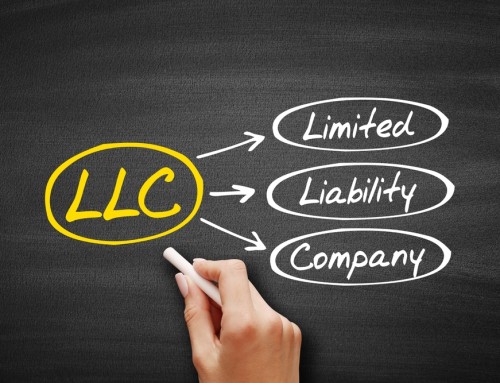Estate planning is essential for anyone who wants to protect their assets, ensure their loved ones’ security, and make sure their wishes are respected. However, even well-intentioned estate plans can contain errors that lead to unintended consequences. By understanding the most common mistakes people make in wills and trusts, Arizona residents can build a more secure estate plan that meets their needs. Here’s a look at these common pitfalls and how to avoid them.
Avoid Leaving Assets Directly to Minors
One significant mistake in estate planning is leaving assets directly to minor children. When assets are left to a child under 18, Arizona law generally requires that the child gain control over these assets upon reaching adulthood. However, most parents want more control over when and how their children inherit assets. By setting up a trust within your will, you can designate a conservator to manage the assets for the minor child and specify the age at which the child gains full control.
A trust not only safeguards a minor child’s inheritance but also provides the option to gradually release control of the assets as they mature. This ensures that the assets are managed responsibly and are protected from potential financial mismanagement. By including these protections, you can help secure your child’s future in a way that a basic will alone cannot.
The Importance of Asset Protection for Beneficiaries
Another mistake many people make is assuming that leaving assets to an adult beneficiary will automatically protect those assets. In reality, assets left outright to an adult are vulnerable to creditors, lawsuits, divorce settlements, and bankruptcy. This risk became all too clear in one recent case, where a beneficiary inherited a large sum in a will but lost it all to creditors immediately upon receiving it.
To avoid this, consider leaving significant assets to beneficiaries within an irrevocable asset protection trust rather than directly through a will. An irrevocable trust provides the legal structure to protect assets from creditors, divorce, and other potential liabilities, ensuring that beneficiaries retain full benefit of their inheritance. This setup is particularly valuable for those with substantial assets and can help protect family wealth across generations.
Designating Organ Donation Wishes Properly
Many people mistakenly assume that expressing their desire to be an organ donor in their will is sufficient. However, wills are often not read until after organ donation would be possible, making this approach ineffective. In Arizona, organ donation instructions should be documented on a driver’s license, state ID, or a living will.
These alternatives are legally recognized and ensure that your wishes regarding organ donation can be carried out in a timely manner. By planning ahead with the proper documentation, you can avoid potential confusion and ensure that your wishes are respected.
Correctly Naming Beneficiaries for Retirement Accounts
Another common mistake in estate planning is naming beneficiaries for retirement accounts—such as IRAs, 401(k)s, or other retirement plans—within a will. These types of assets do not pass through a will but instead transfer directly to beneficiaries based on the beneficiary designations on file with the retirement plan custodian. To correctly pass on retirement assets, complete the required beneficiary designation forms with your retirement plan provider, naming both primary and contingent beneficiaries.
This step ensures that your retirement assets are transferred seamlessly to the intended beneficiaries without delay. If you rely solely on a will for these accounts, it could lead to unintended complications, as retirement assets are subject to specific federal rules that require proper beneficiary designation.
Separate Directives for Medical and End-of-Life Wishes
A will is not the place to specify end-of-life medical directives, such as “do not resuscitate” (DNR) orders or instructions to discontinue life support. Arizona requires DNR orders to be on specific orange-colored paper and filed separately to be enforceable. If you wish to provide instructions for these medical decisions, you should create a living will. This legal document offers a clear directive regarding your wishes in terminal situations and ensures that your doctors and loved ones understand your choices.
Additionally, naming someone to make medical decisions on your behalf requires a health care power of attorney, which allows a designated individual to advocate for you if you are incapacitated. This document ensures that the person you trust can act on your behalf in line with your wishes, rather than relying on a default family member or legal representative.
Choosing a Financial Power of Attorney for Incapacity
Many people mistakenly list someone in their will to handle their finances in the event of incapacity. However, a will only goes into effect after death and does not cover scenarios in which a person becomes mentally incapacitated or otherwise unable to make decisions. For such situations, a separate financial power of attorney document is needed. This document allows you to appoint a trusted individual to manage financial matters, pay bills, and handle transactions on your behalf if you become incapacitated.
Without a financial power of attorney, loved ones may face unnecessary complications or court involvement to manage your affairs. By proactively designating someone through a financial power of attorney, you ensure that your finances are secure and managed according to your wishes during any period of incapacity.
Do Not Include DNR Orders in Your Will
In Arizona, DNR orders must be on orange-colored paper, and they cannot simply be stated in a will. A will is typically only read and acted upon after death, so any DNR instructions within it would be ineffective in a medical emergency. By filling out the required form and keeping it easily accessible, you can ensure that your medical team is aware of your wishes without delay. The Arizona Department of Health Services provides DNR forms, which are widely accepted and enforceable.
Including a DNR in your will can create confusion and delays. By taking the time to prepare the appropriate form, you protect your wishes and provide clarity for both medical professionals and family members.
Plan Your Estate Carefully with Comprehensive Legal Documents
Estate planning is a powerful way to protect your assets, care for loved ones, and ensure that your wishes are respected. By understanding the unique roles of each document—such as wills, living trusts, powers of attorney, and living wills—Arizona residents can build a plan that truly reflects their needs and values.
At KEYTLaw, we help clients avoid these common mistakes and develop a secure, personalized estate plan. To learn more about how we can help you create a well-rounded estate plan, book a free consultation today.






